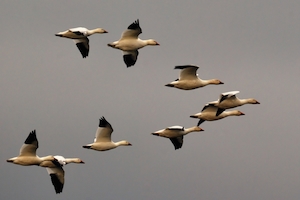By Charles Buxton.
At INTRAC’s November 2014 conference on civil society sustainability, I began my presentation with the deterioration in the external environment in the region where I work – former Soviet Union. Mikhail Gorbachov had just noted an anniversary of the fall of the Berlin Wall with a comment that the West has failed to deal equitably with the results of perestroika, and there is a danger of a new “cold war”. In our own sphere of activity, from being a rallying cry for dissidents, “civil society” has become one of the key pillars for neo-liberal policies opposed by many around the world. NGOs are questioned from the right and left, from above (governments and those with power) and from below (political and social movements).
 In Central Asia a change in CS leadership is gradually taking place, after 20 years of independence in Central Asia, during which migrants’ remittances from Russia and other countries, have gradually overtaken aid from international development agencies in terms of support given directly to poor families. Added to which, we are just one of the regions around the world where the Western story about the “war on terror” is not automatically well received. NGOs started thinking about how to get support from their own governments more than 10 years ago, and a number of social contracting procedures already exist where governments can afford them.
In Central Asia a change in CS leadership is gradually taking place, after 20 years of independence in Central Asia, during which migrants’ remittances from Russia and other countries, have gradually overtaken aid from international development agencies in terms of support given directly to poor families. Added to which, we are just one of the regions around the world where the Western story about the “war on terror” is not automatically well received. NGOs started thinking about how to get support from their own governments more than 10 years ago, and a number of social contracting procedures already exist where governments can afford them.
There are immense pressures on people and organisations to take sides in the new cold war in FSU or the hot civilizational / imperialist war being fought in the Middle East. Some NGOs will feel it is their duty to support their governments or religions in these conflicts. For others, there is a huge need to find firm principles with which to stand outside or above the conflict. In fact, there is a battle in our own societies that we may not always be adequately responding to.
In Donetsk, we see a militarised geopolitical conflict in which not just the Ukrainian government but the USA, EU and Russia bear a huge responsibility for the loss of life. Civil society will be given (as usual) the task of picking up the pieces. In Paris we mourn the loss of journalists’ lives; but while we celebrate the “right to laugh”, we should be aware that the other side in this conflict may reserve the “right to cry”. Iraq, Syria and Palestine are indeed crying today. We need to ask ourselves, are we sure we are not being used by the parties to these conflicts?
In Central Asia we are starting a year in which all of this looks very bad for civil society. As I noted in my comments to the INTRAC conference, the older ones of us remember the cold war and the difficulty of maintaining citizens’ diplomacy against governments on both sides. Are we looking at this situation in FSU and Middle East today? If so, what is our attitude going to be in 2015? It looks like the search for peace initiatives sensitive to but independent of governments and religions is one of our main priorities. The politics of civil society may have to change.